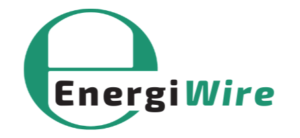INTRODUCTION:
Despite the fact that the Decentralized Finance (DeFi) ecosystem and the world of digital currencies have been plagued by a crypto winter for the bulk of 2022, a recent analysis from Hashkey Capital shows that DeFi has showed more promise for a speedy growth breakout. It’s unclear from the article below by blockchain journalist Benjamin Godfrey whether the December 2022 Raydium hack on Solana DeFi Exchange was taken into account during the analysis.
_________________________________________________________
As the DeFi ecosystem tends toward maturity, the combined activities in this unique offshoot of blockchain technology rake in as much as $8.2 billion in fees.
The digital currency industry and the Decentralized Finance (DeFi) ecosystem have been embroiled in a hash crypto winter for the better part of 2022. Despite these tough economic and market conditions, a recent report from Hashkey Capital, a renowned crypto fund with roots in Asia has shown that DeFi has exhibited more potential for an imminent growth breakout.
According to the report, the DeFi ecosystem remained a darling of Venture Capital (VC) investors throughout the year. This investor injected as much as $14 billion into a total of 725 crypto projects, including numerous DeFi protocols, in the first half of the year alone. This first half is assumably the period that the industry was rocked with the impacts of Terra (LUNA) and its associated algorithmic stablecoin (UST) collapses. This plunge fueled bankruptcies in Three Arrows Capital (3AC) and Voyager Digital, amongst others.
Besides the capital influx, the DeFi ecosystem also saw many new users make their way into the industry. The HashKey Capital data shows that DeFi user growth Quarter-Over-Quarter grew by 44%. In the third quarter that ended October 31, the total number of active DeFi wallets surpassed 5 million users overall.
Some of the growth metrics published by HashKey showed that the DeFi world has maintained a very close correlation with the mainstream traditional financial ecosystem. At the time when performance in the DeFi world was at its peak, the industry had a market valuation that would have been equal in size to the 20th largest bank in the United States.
There are currently tens of blockchain protocols where DeFi activities take place, but of them all, Ethereum dominates. As many as 58% of all activities in the DeFi ecosystem take place on Ethereum, with BNB Chain, Avalanche, and Solana also taking a significant share according to data from DeFiLlama.
DeFi Ecosystem Growth Echoes Institutional Embrace
As the DeFi ecosystem tends toward maturity, the combined activities in this unique offshoot of blockchain technology rake in as much as $8.2 billion in fees. These milestones are impressive, but what lends credence to the forecast for a brighter future is the fact that more institutional players are getting involved in the DeFi world.
Besides hedge funds and their investments, mainstream financial services providers including Huntingdon Valley Bank, a Pennsylvania Chartered Bank, JPMorgan Chase & Co (NYSE: JPM) and Societe Generale SA (EPA: GLE) have been making concerted efforts to adopt specific DeFi products. These products range from both collateralized and uncollateralized loans amongst others.
“Many centralized financial systems failed this year, the market realized that DeFi, which is entirely on-chain based and extremely transparent, might be the answer to the innovation dilemma of non-compliant financials,” says Jupiter Zheng, Research Director at HashKey Capital.
A major selling point for DeFi is that it is still very new and evolving, with a lot of innovators willing to contribute to its evolution. The general forecast consensus is that in the next decade, DeFi will serve as a major entry point for the next 1 billion users making their way into the broader digital currency ecosystem.

